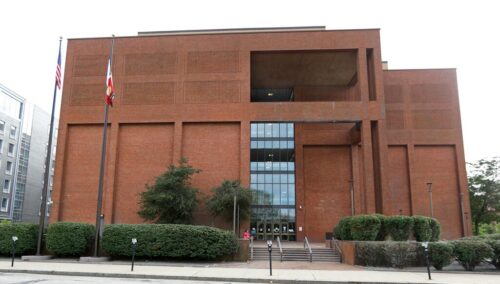PROVIDENCE — In a lawsuit filed Monday, the American Civil Liberties Union of Rhode Island is challenging Brown University’s claim that its police department is exempt from the state’s public records law and can keep its arrest reports secret.
“It is shocking that a police department would claim that it can keep secret its records relating to the arrests of individuals,” ACLU of Rhode Island executive director Steven Brown said. “This lawsuit involves fundamental matters of public transparency and accountability.”
The lawsuit comes as the General Assembly is considering legislation that would overhaul the state Access to Public Records Act. One of the 48 proposed changes would state explicitly that the law applies to the “police department of any private educational institution” that employs statutorily authorized police officers subject to the law.
Advocates push for updated R.I. public records law, seeking access to state’s crash data
And it comes after Michael Greco, a Brown University police officer for 18 years, testified on May 22 before the state’s Senate Judiciary Committee, saying the Access to Public Records Act should apply to the Brown police. Greco said he saw Brown officers could be sent “to an incident that should have been handled by Providence police and by doing so, turn what should have been public record…into private record.”
The lawsuit argues that Brown University’s Department of Public Safety wields state-authorized police powers and therefore fits within the state Access to Public Records Act’s definition of an “agency.”
“The purpose of this action is simple,” ACLU of Rhode Island cooperating attorney Fausto Anguilla said in a statement. “Every city and town police department in Rhode Island must provide arrest reports under APRA. Brown’s police should not be an exception.”
Brown University spokespersonBrian Clark said the school had not been served with the lawsuit as of midday Monday. But he noted that in January Attorney General Peter F. Neronha’s office concluded that Brown’s police department is not a “public body” under the Access to Public Records Act, as it is currently written.
“This has long been the case. and we are prepared to mount a strong effort to make clear the many reasons why,” Clark said. “The jurisdiction of Brown’s Department of Public Safety is limited to university buildings, adjacent streets, and the protection of university students, faculty, staff, and property.”
The Department of Public Safety works with the Providence Police Department, which is subject to the public records law and refers all cases for prosecution to Providence police or the attorney general, he said. The university also provides public access to a daily police log and reports annual crime statistics in accordance with the federal Clery Act, he said.
“Given the limited jurisdiction of Brown (Department of Public Safety), the cooperative relationship we sustain with law enforcement and current approaches for sharing information, our current practices meet the goals of ensuring public safety,” Clark said.
Anguilla, a former state representative, filed the lawsuit in state Superior Court against Brown University’s Department of Public Safety on behalf of two journalists, after the department refused to provide them reports of arrests made by Brown officers.
In 2022, Noble Brigham, then a Brown Daily Herald reporter, was investigating the story of a man who had been charged multiple times by Brown’s Department of Public Safety with trespassing and breaking and entering on the Brown campus.
Brigham submitted a public records request for the arrest reports, which was initially ignored by Department of Public Safety. When the department did respond, it was to assert that the Access to Public Records Act did notapply because Brown is a private university.
In 2023, Motif Magazine reporter Michael Bilow was reporting on 41 Brown University students who were arrested by Brown public safety officers and charged with trespassing after protesting university investment practices and refusing to leave a university building after hours.
When Bilow filed an public records request seeking the arrest reports, Brown’s public safety department ignored the request. Bilow and Brigham filed complaints with the attorney general’s office. In January, Neronha’s office issued an opinion, agreeing with Brown that the university was not subject to the state’s Access to Public Records Act.
The lawsuit Monday notes that the public records law applies to private agencies that are “acting on behalf of and/or in place of any public agency,” and the suit claims the Brown Department of Public Safety fits that definition.
“By engaging in one of the most fundamental functions of government — the enforcement of criminal laws and exercising the power to search and seize individuals — (the Brown Department of Public Safety) is acting on behalf of and/or in place of a government agency or public body,” the suit states.
The lawsuit asks the judge to declare that the Brown Department of Public Safety is a public body within the meaning of Access to Public Records Act, and that it must comply with requests for arrest records and other publicly available law enforcement documents.
Bilow said, “Experience has proven that preventing police abuses depends on full transparency under the law, and it is a civic responsibility of news reporting to keep the public aware and informed about what is done in their name.”
Brigham said, “Access to police reports is a basic public right. The public should be able to understand why police have arrested someone, and Brown’s stance that its nonprofit status exempts them from the state law every municipal Rhode Island police department follows is troubling.”




Comment count: